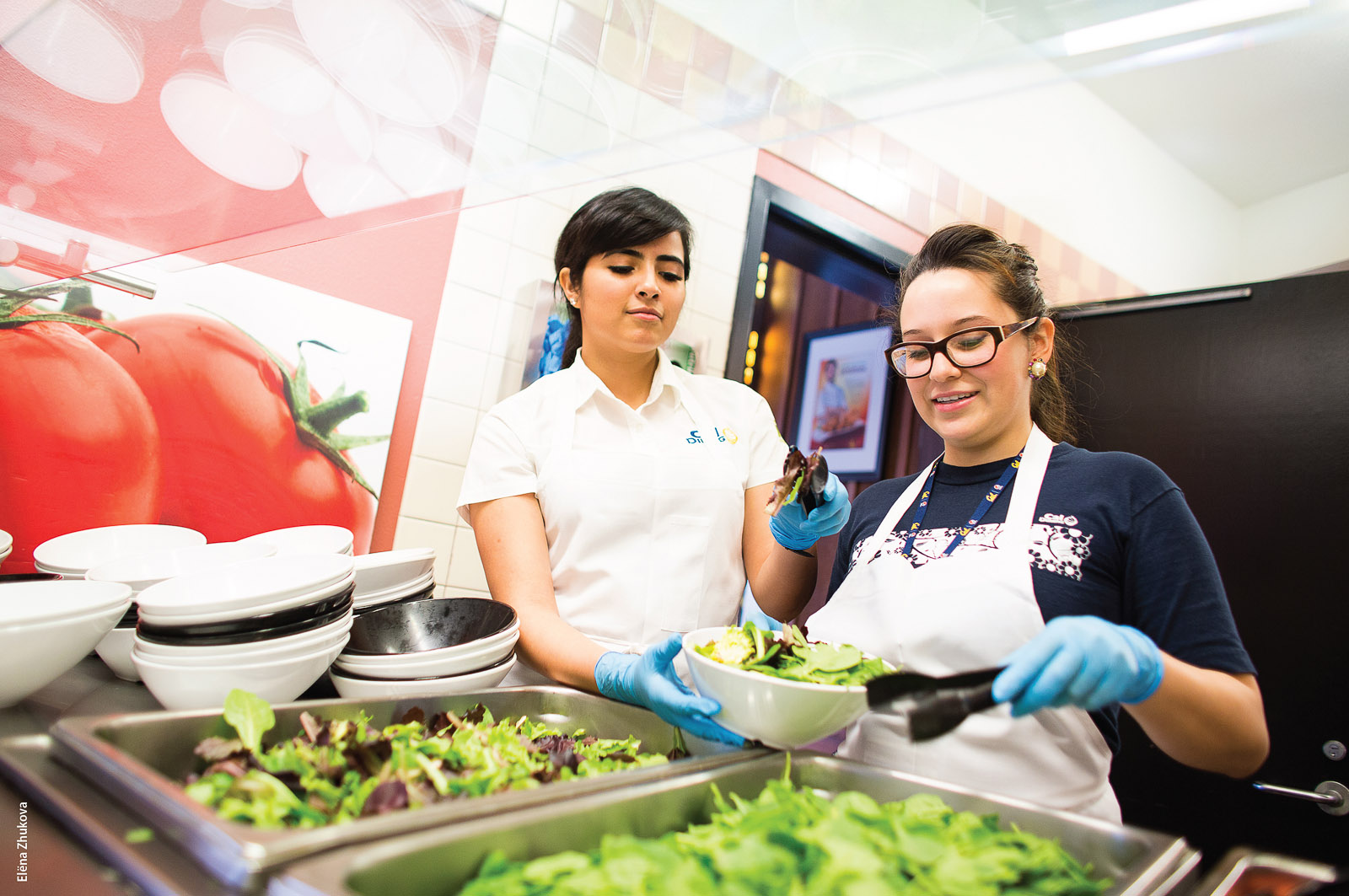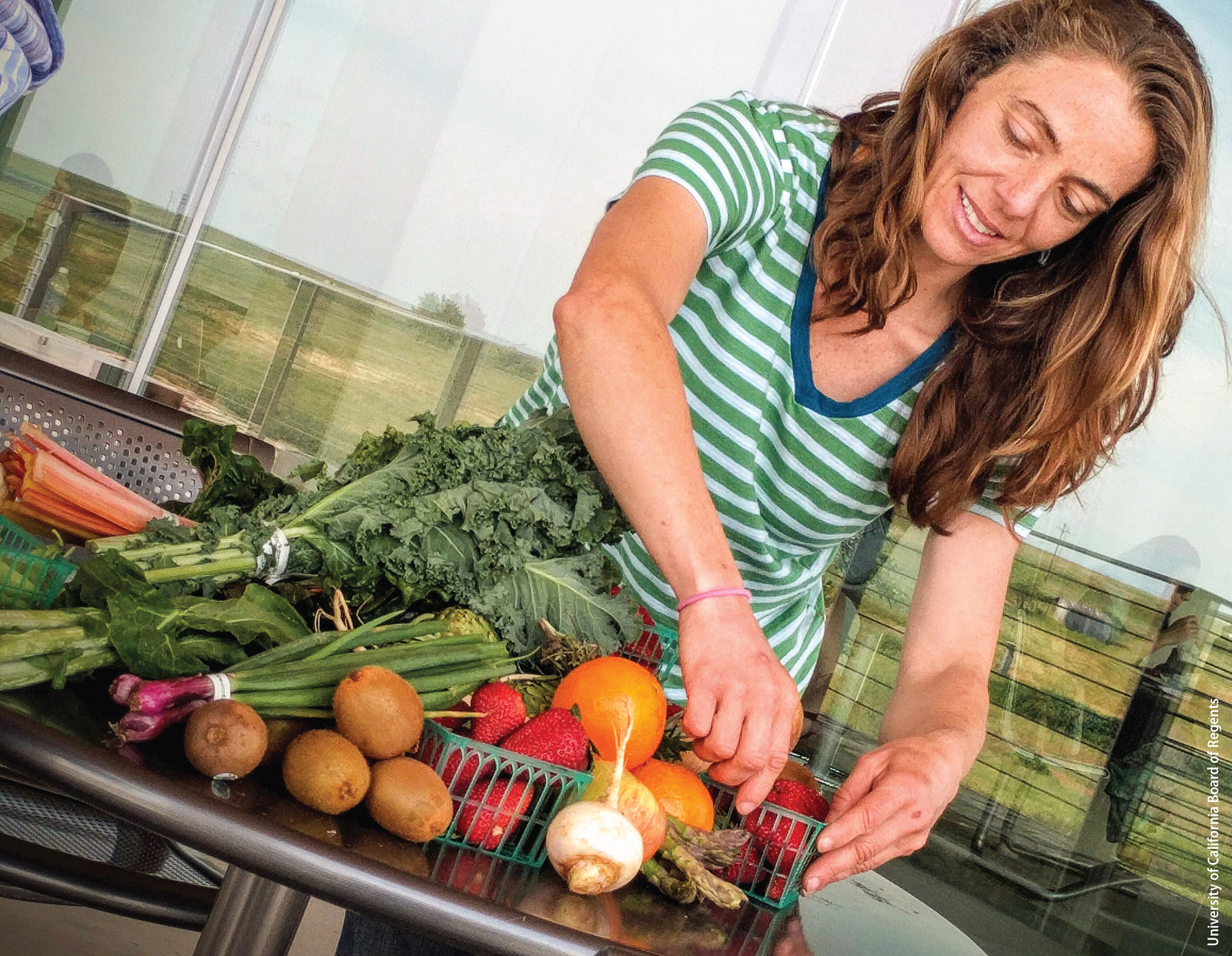All Issues
Ensuring basic access to food for UC students
Publication Information
California Agriculture 71(3):110-111. https://doi.org/10.3733/ca.2017a0037
Published online September 13, 2017
PDF | Citation | Permissions
NALT Keywords
Summary
Each campus is working toward food security for all by 2020.
Full text
In summer 2014, Ruben E. Canedo, recipient of the prestigious Regents' and Chancellor's Scholarship when he was a student at UC Berkeley, was asked by the UC Office of the President to co-facilitate the coordination of food pantries on UC campuses. Just one semester later, when it became clear to Canedo and campus leaders that many UC students had inadequate resources for food, that focus widened to urgently addressing food insecurity at the university level. Since then UC has strongly committed to advancing food security and also security in other basic needs, such as housing, for all UC students.
In 2015, the first-ever UC Student Food Access and Security Study (bit.ly/29Lcdpr) of students at all 10 campuses, developed by UC ANR's Nutrition Policy Institute as part of the Global Food Initiative, found that 19% of student respondents experienced very low food security, which the U.S. Department of Agriculture (USDA) defines as experiencing reduced food intake due to limited resources. An additional 23% had low food security, defined as reduced quality, variety or desirability of diet, with little or no indication of reduced food intake (see Watson et al., p. 130).
Canedo, director of equity initiatives at UC Berkeley's Division of Equity and Inclusion, is co-chair of the UC Global Food Initiative Basic Needs Access and Security subcommittee. He and Tim Galarneau, community-engaged education coordinator at UC Santa Cruz's Center for Agroecology and Sustainable Food Systems, each coordinate five UC campus committees, where student, staff, faculty, administrators and community leaders are building strategies for addressing student basic needs.
UC campuses such as UC Berkeley are working to increase the availability of nutritious and sustainable food to students.
The subcommittee has made significant progress, with basic needs committees in place on all 10 campuses, and partnerships established with the California state universities and community colleges and with local and national experts on food and housing to facilitate research and plan preventative strategies. The extensive data that UC has collected on students' struggles in meeting their basic needs sets the university in the lead nationally on this issue. In 2016, the UC systemwide student experience surveys were updated by UCOP's Institutional Research and Academic Planning unit to include both food and housing security questions, which will produce ongoing student data and show the impact of the university's efforts.
This summer the subcommittee will launch a best practices toolkit. It will highlight campus education and community engagement programs, such as the UC Davis CalFresh Project, and give details on how they work, their challenges and lessons learned. Also described will be campus food access models, including the UC Los Angeles Farmers Market Gleaning Program, and policy and institutional practices, such as the UC Irvine Food Pantry Usage and Tracking process. Sharing information from so many campus projects will benefit universities and colleges across the nation looking to address basic needs.
The ultimate goal, said Galarneau, is to “inform a sea change across the United States in how higher education approaches the basic needs of students.” The solution is not a provision of services limited to food pantries, but a system shift so that basic needs are ensured from the start. “This struggling of students is happening at too high a rate, so we must make structural changes,” Canedo said.
According to the 2015 UC Student Food Access and Security Study, most food-insecure students (57%) did not report experiencing food insecurity as children. “Most of these students didn't grow up hungry or homeless,” said Canedo. “Thinking these are only the low-income students, the Pell grant or undocumented students — that's false. We have students from working-class and middle-class families who become food insecure as college students. We also have students who come from wealthy families who are cut off from support due to being LGBT+ or choosing a different faith or religion. For these students, the challenges are new, and they are embarrassed and unprepared to seek help.”
Guided by the survey findings, President Napolitano allocated more than $377,000 per campus in funding for the 2 years 2016–2018. The funding supports campus efforts to develop programs such as food trainings, emergency aid, food pantries, curricular and research alignment and an effective communication and marketing plan to reach target students.
Canedo quickly has become a national expert on student basic needs; he knows the crisis through his work with campus students, the data, and personally. He experienced food insecurity himself even with that scholarship and would have had periods of homelessness if his mentors had not helped him. Galarneau, a former UC student leader with a focus on sustainability and social justice, has expertise in university food service policy. Together, and with the support from the Global Food Initiative, they are “twisting up a strong rope of support for students across the UC,” said Galarneau, and galvanizing support for other students in California and nationally.
—Editors





